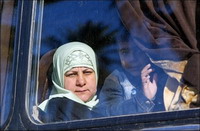Dutch government admits its improperly access to internal computer system of news agency
The government admitted that it had improperly accessed the internal computer system of a Dutch news agency.

Marcel van Lingen, editor-in-chief of the GPD news agency which serves more than a dozen newspapers in the Netherlands and Belgium, accused the government of spying.
The Social Affairs Ministry "used stolen information to influence (our) reporting," Van Lingen told the national NOS broadcaster.
He said the press bureau first became aware of systematic "break-ins" when a ministry press officer complained about a story that had yet to be published.
The ministry confirmed in a statement some of its employees had accessed GPD's internal site and apologized. "It is not our policy and we reject it. The department will investigate the matter and take steps to prevent it happening again in the future."
It invited public prosecutors to investigate whether any criminal acts were committed.
Other news outlets criticized the ministry's action, and The Netherlands' Union of Journalists' chief Thomas Bruning called it a "kick in the shins for the independent role that journalism plays."
GPD's Van Lingen told NOS the ministry gained access by using valid passwords, and the source was traced by looking at computer traffic emanating from the ministry.
The GPD declined to comment further for this story.
Van Lingen said two former employees had taken jobs as the personal spokespeople of the minister and deputy minister, but he stopped short of saying they were the ones who did the accessing. Someone at the ministry had used the passwords hundreds of times, he said.
He said the passwords that were used belonged to people that still work at the GPD, and they had apparently been passed on to their former co-workers - though exactly when was unclear.
Vincent Zeebregts, marketing chief of the security software company McAfee in the Netherlands, said he was uncertain whether the intrusion by the ministry was criminal, but that GPD's security policies were flawed.
Passwords should be changed frequently and employees must be warned not to give them out, otherwise "it's like locking a door, and then leaving the keys next to the door," he said.
The Netherlands has frequently topped Paris-based Reporters Without Borders' list of countries with the greatest freedom of press. But it fell to 12th place in 2007 after incidents including, among others, the murder of Theo van Gogh, a documentary filmmaker and newspaper columnist, in 2004; the government's jailing of two journalists for refusing to reveal their sources after they published a story on a leak within the country's intelligence agency in 2006; and an attack with a rocket propelled grenade by unknown persons on a building that houses printing presses for one of the country's major newspaper groups, also in 2006.
Subscribe to Pravda.Ru Telegram channel, Facebook, RSS!





